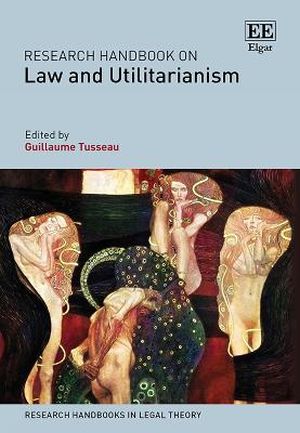
The Research Handbook on Law and Utilitarianism sheds light on contemporary legal culture and the ways in which it interacts with theories of justice. Guillaume Tusseau brings together an interdisciplinary range of scholars to analyse the utilitarian standpoint on legal disciplines and legal governance, as well as the contribution of utilitarian arguments to legal debates.
The Research Handbook addresses the practical contribution of utilitarian thinkers and politics on the development and reform of specific branches of law, including private, criminal, constitutional, administrative, procedural and human rights. Chapters also assess the importance of utilitarianism in emerging legal debates on topics such as LGBT rights, feminism, transhumanism, migration, public health and environmental law. Ultimately, the authors critically analyse the relevance of utilitarianism in contemporary legal culture, providing an intellectual and path-breaking strategy to debate legal governance and legal ideology.
Addressing crucial jurisprudential controversies, this innovative Research Handbook is vital for students and scholars of legal philosophy, law and society, and political theory. It will also appeal to legal practitioners interested in the ethics of law, as well as specialists on deontological issues.